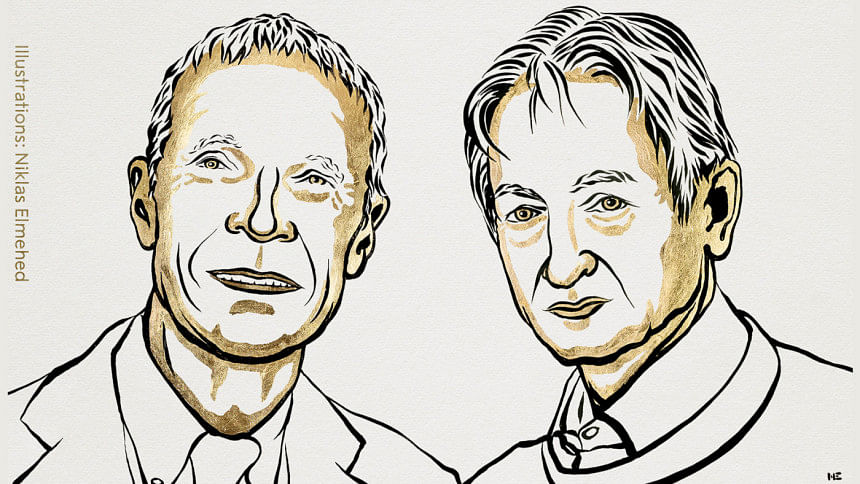Hopfield and Hinton win 2024 Nobel Prize in Physics for key breakthroughs in AI
American John Hopfield and British-Canadian Geoffrey Hinton won the Nobel Prize in Physics on Tuesday for pioneering work in the development of artificial intelligence.
The pair were honoured “for foundational discoveries and inventions that enable machine learning with artificial neural networks,” the jury said.
“This year’s two Nobel Laureates in Physics have used tools from physics to develop methods that are the foundation of today’s powerful machine learning,” the Swedish Royal Academy of Sciences said in a statement.
Hopfield, 91, a professor at Princeton University, was spotlighted for having created “an associative memory that can store and reconstruct images and other types of patterns in data.”
The jury said Hinton, a 76-year-old professor at the University of Toronto, “invented a method that can autonomously find properties in data, and so perform tasks such as identifying specific elements in pictures.”
“I’m flabbergasted… I had no idea that could happen,” Hinton told reporters via a phone interview as the winners of the award were announced in Stockholm.
The pair will receive their prize, consisting of a diploma, a gold medal and a $1 million cheque, from King Carl XVI Gustaf in Stockholm on December 10, the anniversary of the 1896 death of scientist Alfred Nobel who created the prizes in his last will and testament.
Last year, the Nobel Prize in Physics went to France’s Pierre Agostini, Hungarian-Austrian Ferenc Krausz and Franco-Swede Anne L’Huillier for research using ultra quick light flashes that enable the study of electrons inside atoms and molecules.
The Nobel season continues this week with the announcement of the winner, or winners, of the chemistry prize on Wednesday — followed by the much-anticipated prizes for literature on Thursday and peace on Friday.
The Economics Prize winds things up on Monday, October 14.
Awarded since 1901, the Nobel Prizes honour those who have, in the words of prize creator and scientist Alfred Nobel, “conferred the greatest benefit on humankind”.
Recent winners of the Nobel Physics Prize
Here is a list of the Nobel Prize in Physics winners over the past 10 years:
2023: Pierre Agostini (France), Ferenc Krausz (Hungary-Austria) and Anne L’Huillier (France-Sweden), for research into tools for exploring electrons inside atoms and molecules.
2022: Alain Aspect (France), John Clauser (United States) and Anton Zeilinger (Austria), for groundbreaking work in the field of quantum mechanics.
2021: Syukuro Manabe (United States-Japan) and Klaus Hasselmann (Germany), for climate models, and Giorgio Parisi (Italy) for work on the theory of disordered materials and random processes.
2020: Roger Penrose (Britain), Reinhard Genzel (Germany) and Andrea Ghez (United States), for their research into black holes.
2019: James Peebles (Canada-United States), for discoveries explaining the evolution of the universe after the Big Bang, and Michel Mayor and Didier Queloz (Switzerland), for the first discovery of a planet outside the Solar System orbiting a star like our Sun in our home galaxy.
2018: Arthur Ashkin (United States), Gerard Mourou (France) and Donna Strickland (Canada), for inventions in the laser field used for advanced precision instruments in corrective eye surgery and industry.
2017: Barry Barish, Kip Thorne and Rainer Weiss (United States), for the discovery of gravitational waves, a phenomenon predicted by Albert Einstein a century ago as part of his theory of general relativity.
2016: David Thouless, Duncan Haldane and Michael Kosterlitz (Britain), for their study of strange phenomena in unusual phases, or states, of matter, such as superconductors, superfluids and thin magnetic films.
2015: Takaaki Kajita (Japan) and Arthur McDonald (Canada), for their work on neutrinos.
2014: Isamu Akasaki (Japan), Hiroshi Amano (Japan) and Shuji Nakamura (United States), for their work on LED lamps.
LondonGBDESK//



Comments are closed.